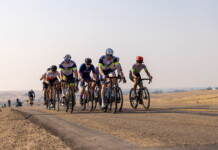LIÈGE, Belgium (April 27, 2025) — As the spring sun bathed the cobbled streets of Liège in gold, a familiar figure once again stamped his authority on cycling’s oldest Monument. Tadej Pogačar, wearing the unmistakable rainbow bands of the world champion and the yellow hue of the reigning Tour de France winner, soared to a commanding solo victory at the 111th edition of Liège-Bastogne-Liège on Sunday. With it, he etched his name even deeper into the history books — one Liège closer to the seemingly untouchable legacy of Eddy Merckx.
With a searing attack on the famed Côte de La Redoute — the very same climb he used as his launchpad one year ago — Pogačar blew apart the race with just over 35 kilometers to go and never looked back. What followed was a time trial disguised as a solo escape, with the Slovenian’s metronomic power and unshakable resolve carrying him alone to the finish line on Quai des Ardennes.
“It feels great to finish the first part of the season like this,” Pogačar said at the finish, casually draped in a Slovenian flag, mud-splattered and smiling. “It all went perfect so far. I didn’t really plan to attack at La Redoute. The pace was hard before and I saw that some of my rivals didn’t have many teammates anymore. I decided to test my legs and then assess at the top, depending on the gap, if I would keep going or not. I committed because I had the legs.”
He certainly did. The attack came not just with legs, but with tactical clarity and killer instinct — a signature blend that has become Pogačar’s hallmark. Behind him, chaos reigned. Chasers scrambled in vain, with Giulio Ciccone (Lidl-Trek) and Ben Healy (EF Education-EasyPost) eventually emerging as the strongest of the rest to round out the podium.
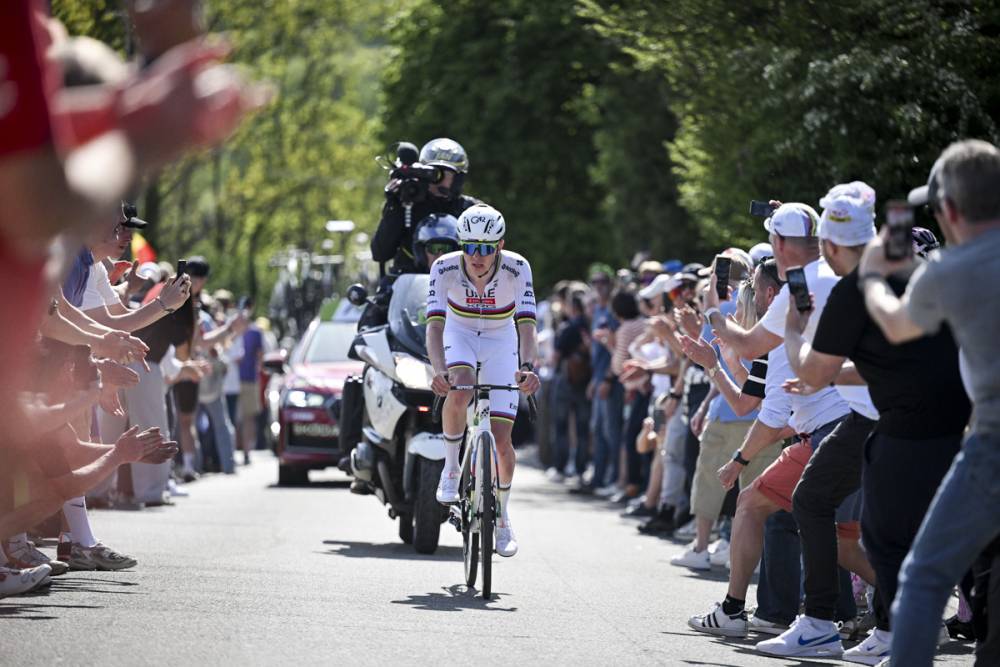
A Solo for the Ages
Pogačar’s 35-kilometre time trial to the line was, in a word, devastating. His victory marks his third at La Doyenne, and it caps a spring campaign that now borders on the mythical. He podiumed in all four of cycling’s Spring Monuments — third at Milan-San Remo, second at Paris-Roubaix, and victorious at the Tour of Flanders. Only Sean Kelly in 1984 and Merckx himself, in 1969 and 1975, had previously accomplished that.
“This is a perfect Classics campaign,” Pogačar said, almost in disbelief. “I’m not here to write any books, I just enjoy bike racing. I can be happy and humble that I’m so good at it. For sure, the victories are the best but the experience in Roubaix was something I never imagined I could do. We created a lot of nice memories this spring.”
That list of memories now includes one of the most dominant solo rides in recent Liège history — a race that, more often than not, is decided in the final kilometer, not 35 from the finish.
From Bastogne to the Ardennes: How the Race Unfolded
A total of 174 riders rolled out of Liège at 10:35 a.m. under cool spring skies. One notable absentee was George Bennett (Israel-Premier Tech), a non-starter. A breakaway of 10 formed early, with Hannes Wilksch (Tudor Pro Cycling) and Jack Haig (Bahrain Victorious) among the animators. They were joined later by Mathis Le Berre and Johan Meens, but the peloton, marshaled diligently by UAE Team Emirates, Soudal–Quick-Step, and Lidl-Trek, never allowed more than 5’50” of breathing room.
Tension simmered at the Col de Haussire, where Ineos Grenadiers’ Bob Jungels and Tobias Foss launched a stinging attack. UAE’s Domen Novak, however, remained ice-cool, reeling them in by the Côte de Wanne. The decisive moment came on the fierce slopes of La Redoute (1.6 km at 9.4%), where the race imploded.
“The plan wasn’t set in stone to attack there,” Pogačar later explained. “But when I saw Quick-Step drop off the front, and Remco [Evenepoel] wasn’t there anymore, I knew the time was right.”
Indeed, Evenepoel — a two-time Liège champion and one of Pogačar’s presumed main rivals — had disappeared from the sharp end of the race. Behind, a chase group featuring Ben Healy, Giulio Ciccone, Tom Pidcock, and Julian Alaphilippe formed, but none could match Pogačar’s relentless pace.
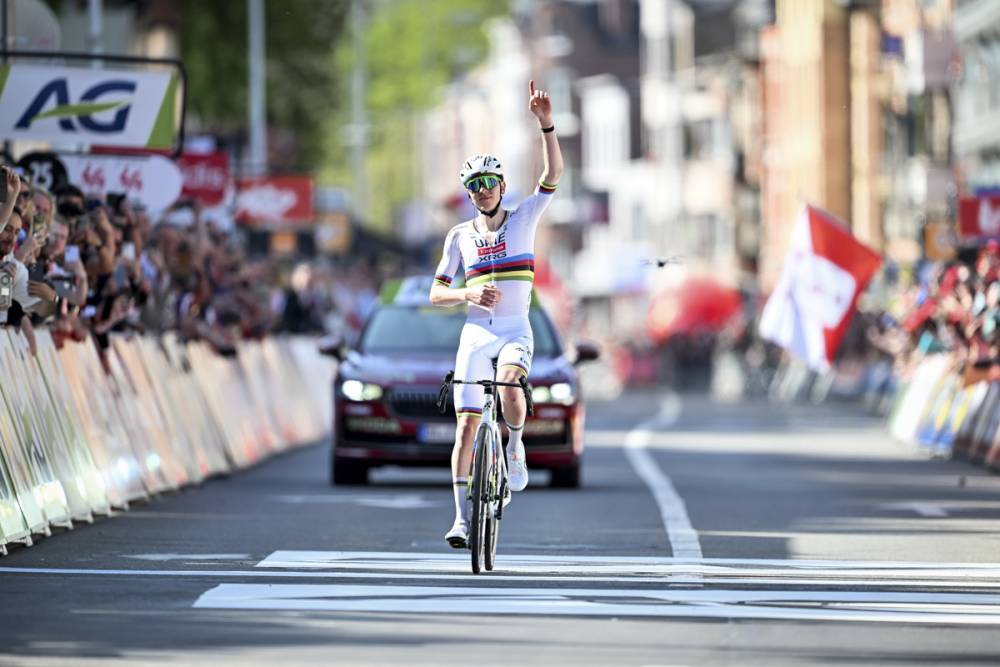
The Best of the Rest
Healy and Ciccone eventually shed their fellow chasers to claim second and third, respectively — both delivering performances of grit and tactical savvy.
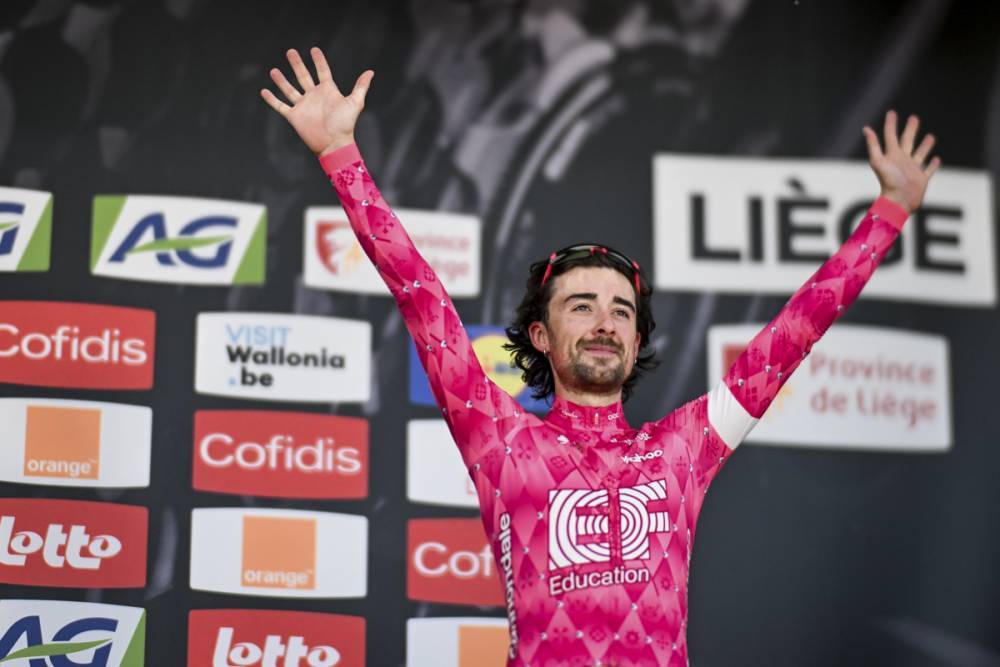
“This is what I have worked all winter for,” said Healy, still catching his breath. “The podium was the goal. Had I been able to win, it would have been great… but I’m super happy to finish off some great teamwork.”
The 23-year-old Irishman had previewed his form with a top-five finish in Brabantse Pijl, but Sunday marked his arrival among the elite.
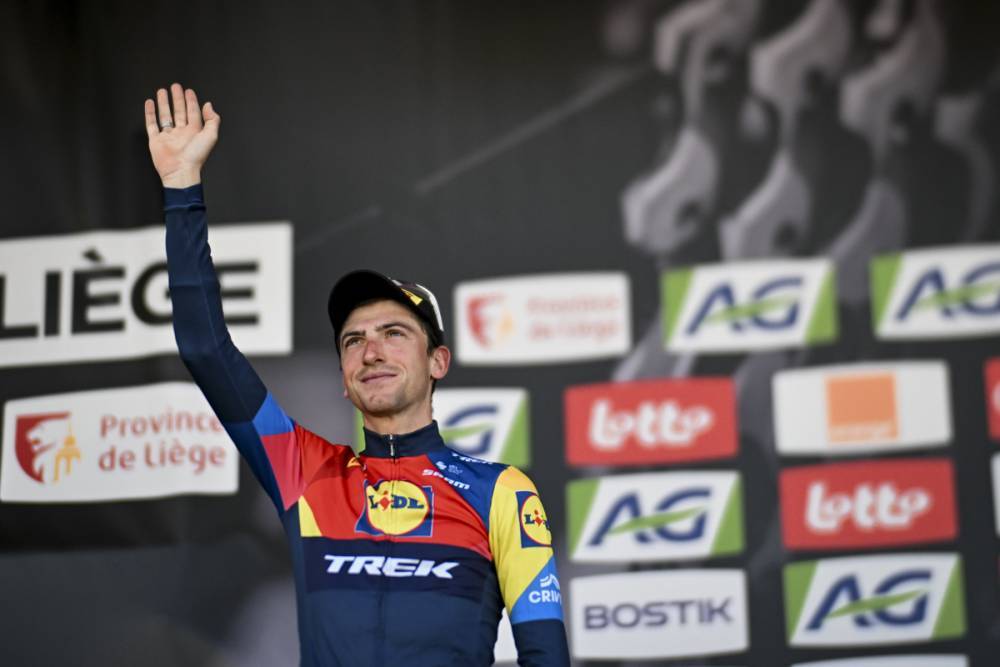
For Ciccone, the result was a welcome confirmation ahead of the Giro d’Italia.
“I feel really tired, but at the same time very happy,” said the Italian. “When Tadej Pogačar attacked, I just focused on myself and setting my own tempo. I knew I didn’t have the legs to follow him, so I just made the best use of my energy. It means a lot to finish on the podium, just a few months after doing the same at Il Lombardia.”
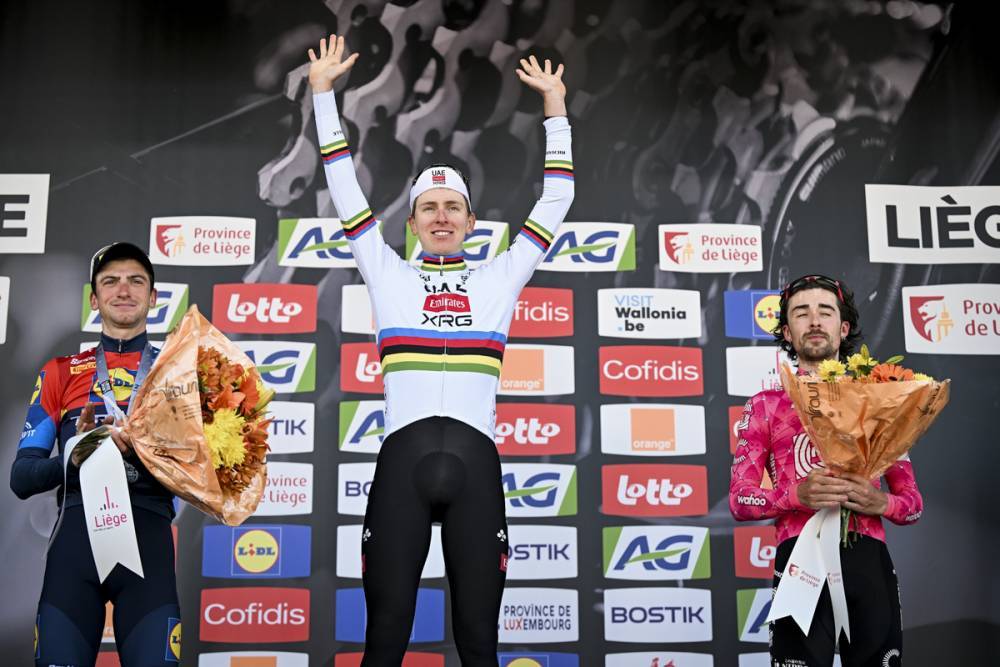
Toward Cycling Immortality
For Pogačar, this win isn’t just another laurel — it’s another thread in a narrative that increasingly parallels Merckx’s. Both riders now share a unique distinction: winning Liège-Bastogne-Liège while wearing the world champion’s stripes and reigning Tour de France title — a feat last seen in 1972.
Still, the 25-year-old remains grounded in his charm and simplicity.
“I’m just super happy. We can be proud of what we’ve achieved,” he said, beaming as if he’d just completed a Sunday club ride.
If this spring campaign proves anything, it’s that Pogačar doesn’t just race to win. He races to define the sport. And in the rolling hills of the Ardennes, he has come one Liège closer to the greatest ever.
Tadej Pogačar Joins the Legends with Victory at Liège-Bastogne-Liège
With his commanding performance at Liège-Bastogne-Liège on Sunday afternoon, Tadej Pogačar secured his ninth Monument victory, a milestone achieved by only five riders before him.
At just 26 years old, the Slovenian superstar continues to leave an indelible mark on the sport. Already one of cycling’s all-time greats, Pogačar added another layer to his extraordinary record by winning “La Doyenne” for the third time, after previous victories in 2021 and 2024. His latest triumph crowns a phenomenal spring campaign that also saw him claim victories at Strade Bianche, the Tour of Flanders, and La Flèche Wallonne.
With 9 Monument wins (4 Il Lombardia, 3 Liège-Bastogne-Liège, and 2 Tour of Flanders), Pogačar now stands alongside Sean Kelly, Costante Girardengo, and Fausto Coppi. Only Roger De Vlaeminck (11) and the legendary Eddy Merckx (19) remain ahead of him. Notably, Pogačar is unrivaled among 21st-century riders — Mathieu van der Poel follows closely with eight Monument wins.
Sunday’s victory also placed Pogačar among the select group of riders — Alfred De Bruyne, Léon Houa, and Alfons Schepers — who have won Liège-Bastogne-Liège three times. He now eyes the higher marks set by Alejandro Valverde and Moreno Argentin (4 wins each) and Eddy Merckx (5 wins).
Making history yet again, Pogačar became the first rider ever to finish on the podium at six consecutive Monuments, starting with his 2024 Liège-Bastogne-Liège win.
Adding to his growing list of accolades, the 26-year-old also completed the rare Tour of Flanders–Liège-Bastogne-Liège double in a single season — a feat previously accomplished only by Eddy Merckx, who did so twice (1969 and 1975).
Finally, Pogačar’s performance on Sunday set a new record for the fastest-ever edition of Liège-Bastogne-Liège, finishing with an average speed of 41.983 km/h.
There seems to be no ceiling to Tadej Pogačar’s dominance — and history suggests he’s only just getting started.


